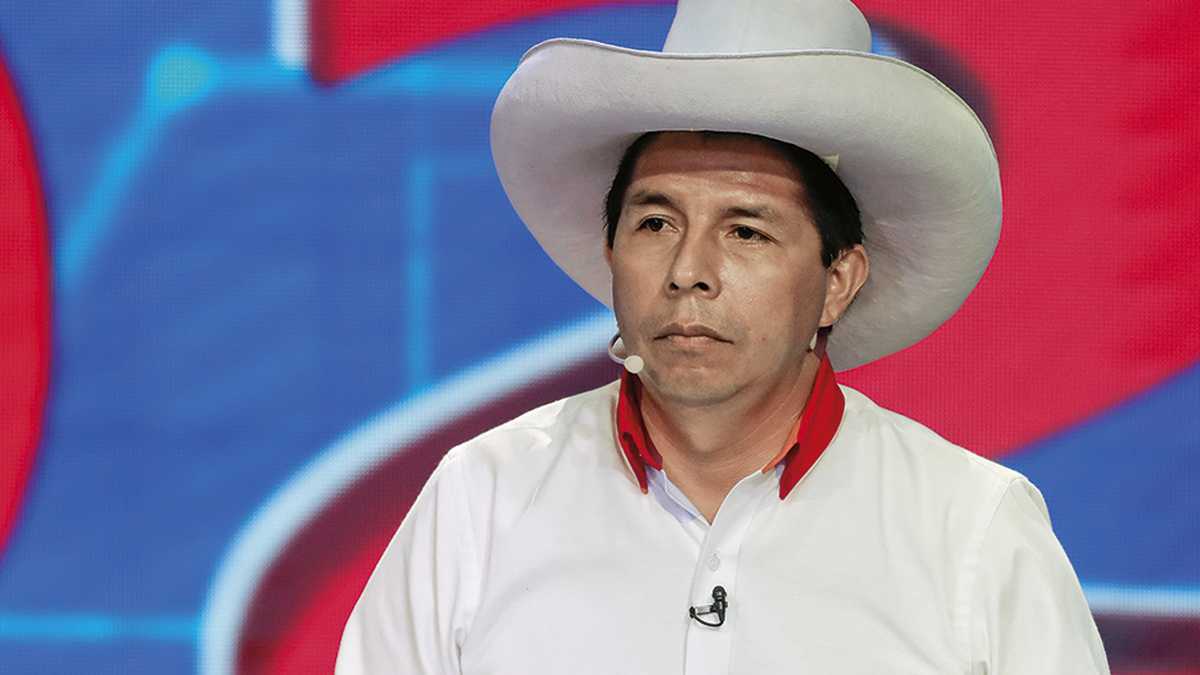By Carla Samon Ros
RIO DE JANEIRO, BRAZIL – A hyperpolarized campaign, a victory by the minimum and a legal offensive that alleged electoral fraud heralded a weak stability for Pedro Castillo, who a year ago was proclaimed president-elect of Peru and, since then, he already has four ministerial cabinets, two parliamentary impeachment attempts and two investigations against him.
On July 19, 2021, the Peruvian electoral court proclaimed the rural school teacher the winner of the second presidential round, who won by surprise, and by just 44,000 votes, his rival at the polls, the right-wing Keiko Fujimori, daughter and heiress politics of former President Alberto Fujimori (1990-2000).
Read also: Check out our coverage on Peru
He did so in a solemn virtual ceremony, held five weeks after the official scrutiny, the longest period of the last 40 years, dilated by a barrage of challenges and legal maneuvers by Fujimori, who denounced without reliable evidence an alleged fraud to avoid her third consecutive defeat in presidential elections.

The strategy, which emulated the path of former United States President Donald Trump, failed in practice, but managed to get her thesis to penetrate a sector of public opinion that took to the streets to demand new elections.
The arrival at the presidential chair of Castillo, a man of peasant origin and alien to traditional Lima politics, challenged the political “status quo” and questioned the established power by vindicating the historically relegated sectors of Peruvian society.
Many warned that the union leader would turn the country into “another Venezuela”, would lead to economic collapse and the kleptocracy of the Peru Libre party, self-defined as Marxist-Leninist, which brought him to power and which he resigned last June after being accused of implanting a “losing neoliberal program” and promote the internal fracture of its parliamentary representation.
LEGISLATIVE WEAR
Crises have plagued Castillo even before he assumed the Presidency on July 28 of last year. Since then, fears of a communist and authoritarian takeover have faded. But, on the other hand, the suspicions about his inability to guide the country on the path of governability did materialize.
Errors and scandals have been constant in his first year in office, weighed down by the instability of a government that already has four different ministerial cabinets and a parliamentary wear and tear that does not give him respite either.
The legislative period led by the conservative María del Carmen Alva, and which ended on July 15 with a disapproval of 79% -even higher than the rejection caused by Castillo (74%)-, added two failed attempts at presidential impeachment, 25 high officials questioned and four ministers censured in less than a year.
The last setback of this ordinary legislature was sealed last Friday, when the plenary session of Parliament approved a report that recommends constitutionally charging the president for an alleged case of corruption that is already in the hands of the Prosecutor’s Office.
Now it remains to be seen what new steps Congress will take with the renewed board of directors, although the outlook is expected to be bleak for the head of state, who is increasingly alone and weakened.
JUDICIAL FENCE
To all this is added the judicial siege on the president, which has tightened more than ever in recent weeks. Last Wednesday, the National Prosecutor’s Office announced that it decided to open a preliminary investigation against him for alleged irregularities in the promotions of the Armed Forces and the National Police.
This is the second fiscal accusation against Castillo, the first for allegedly leading a criminal organization entrenched in the Executive to obtain illicit benefits from the contracts signed by the Ministry of Transport and Communications.
Involved in this alleged corruption plot are, among others, former Minister Juan Silva, former presidential secretary Bruno Pacheco and a nephew of the president, who are currently fugitives from Justice.
As if that were not enough, the environment of the head of state was recently punctuated by another scandal involving his sister-in-law Yenifer Paredes, the sister of the first lady Lilia Paredes, who was raised as a daughter by the presidential couple.
Against this young woman, 27 years old and currently unaccounted for, the Public Ministry opened an investigation for alleged influence peddling, after a journalistic report broadcast a video in which she allegedly appeared offering a sanitation work to the residents of a community from the district of Chota, where the president is from.
Castillo is thus approaching, in full free fall, to celebrate a year in the Government Palace, while the demands (and reasons) of the opposition are increasingly intensifying to resign or, at least, to consider proposing an early election, which citizens demand that the entire political class understand.
With information from EFE

